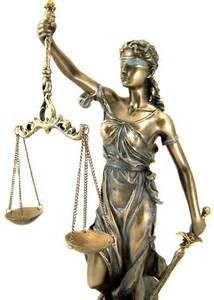ARE CHRISTIANS SUPPOSED TO JUDGE?
Christians are commonly told, when publicly discussing matters of spiritual or civic interest, that they are “not to judge” either individuals, their actions, or groups, governments and non-Christian beliefs. To do so, Christians are told, is to be “biased” or “intolerant.”
What is the truth? How are Christians to address the non- Christian world?
Detractors may sometimes quote the Christian Bible to justify their objections. A common one is Matthew 7:1:
“Judge not, that you may not be judged.” Since these are the words of Jesus Christ Himself, Christians should understand them in proper context, and heed them.
First, let us note that the verse cannot stand alone, without context, as there is a comma following it. Verse two expounds on verse one:
“…for with the same judgment that you judge, you will be judged, and with the same measure with which you measure, it will be measured to you. ”
Verse one is NOT a blanket command for Christians NOT to judge. On the contrary, it is an essential part of Christianity to judge all things, whether they be right, or wrong.
In Luke 12:56-57, Jesus Christ addressed the Pharisees, whom we are told “sat in Moses’ seat” (Matthew 23:1 – 3), judging a remnant of Israel in Palestine:
“ O you hypocrites, you know how to discern the face of the earth and of the sky; how then is it that you do not discern this time? Why do you not of yourselves judge what is right?”
In the early Christian church, congregations (like Israel of old) had to deal with “earthly” matters on a daily basis. It was imperative that matters which could not be dealt with between individuals, be “judged” by the elders of the community. In I Corinthians 6:1-4, the Apostle Paul proclaims the responsibility of Christians, not only to judge fellow believers, but “the world,” as opposed to the angelic realm:
“Would any of you, having a lawsuit against his brother [fellow believer], venture to go to trial before the wicked rather than before the saints? Do you not know that the saints shall judge the world? And if the world is to be judged by you, are you not worthy to judge small affairs? Do you not know that we [ believers in Jesus Christ] are to judge angels?
How much more then should we judge those who belong to this world? You have worldly affairs to be settled, and yet you have put men of bad reputation in the church on the judgment seat”.
“To a “non-religious” person’ this sounds harsh and “intolerant,” but this does not detract from the fact is a duty of our Lord and King’s disciples. As He was “in the world,” but not of it, so are His disciples. In the Olivet Discourse, Jesus Christ addressed His followers:
“…You are indeed the salt of the earth; but if the salt should lose its savour [action, flavor], with what could it be salted? [ i.e. what earthly good would it be?] It would not be worth anything but to be thrown outside and to be trodden down by men. “ (Matthew 5:13)
We commonly witness this in our self-saturated, Christ-hating “world”: Christians feel they must keep their beliefs and practices to themselves, penned within the walls of their institutional gathering place. No one on the outside WANTS to hear what the WORD (Bible) says regarding, for instance, smoking, gambling, gossip & slander, or even more serious matters such as rape, robbery & murder. Those who practice the former, are easily capable of performing the latter, and sometimes do. They do not wish to hear Bible Law, or the precepts (sayings) of Jesus Christ which are squarely founded upon the same Law. To do so, they would then be responsible for what they heard. This is a deep-seated desire to be a “law unto themselves.” All the more reason Christians need to put non-believers in the position of having choose between good, and evil. This is love.
“Hate the evil and love the good, and establish justice in the gate [seat of government]; it may be that the Lord God of hosts will be gracious to the remnant of Joseph ” [ national Israel, and by extension, all Christian believers] (Amos 5.75).
Since Christians are mortal, as well, and susceptible to the desires of the flesh, many (if not most) try to justify NOT judging the world, by finding or listening to teachers or preachers “…according to their desires, being lured by enticing words; and they will turn away their ears from the truth, and they will turn to fables” (2 Timothy 4:3b,4).
Chief among the “fables” mentioned by Paul to Timothy is the notion that Jesus Christ’s atonement on the Cross, put
an “end” to the Law (of Moses, for Israel), even though our Lord Himself said that the Law would NEVER pass away, or Man from the responsibility for it (Matthew 5:17-20). Our Lord’s “Grace” did NOT put an end to the Law (which should be the core of a Christian’s very nature). Even Paul recognized this:
“For it is one God, who justifies the circumcision by faith, and uncircumcision by the same faith. What, then? Do we nullify the Law through faith? Far be it; on the contrary, we uphold the law” (Romans 3:30-31).
The “handwriting of ordinances that was against us” (Colossians 2:14, KJV) concerns the judgments of the Mosaic Law, not the Law itself! The “penalty phase” of eternal judgment was waived for Christian believers, since they had passed “from death unto life” (John 5:24; 1 John 3:14), being promised the resurrection from the grave. That Christian believers still die as non-believers do, is proof of God’s continued judgment of our bodies in this life.
Recently, we saw one of those portable signs in front of a church, intoning, “We are to he witnesses, not judges and lawyers. “Now, maybe not “lawyers” (advocates), except perhaps to judge the cause of the widows and fatherless (James 1:27, et al). But what, pray tell, would a nation be without judges, or judgment at some level? Or a Law Standard, which cannot be redefined or metamorphosed by the whim of those who must abide by it? Anarchy, obviously.
Ministers who teach that God’s Law has been “done away with” by Jesus Christ, not only deny His deity and divinity (as He is the embodiment of that Law, a Lamb without blemish), but deceive their very congregants into non-action, becoming salt trodden underfoot by the “world” (Matthew 5:13). Is this the legacy you will leave your children? Some detractors try to justify their defense of Humanism by quoting part of James 4:11-12: “Who are you to judge your neighbor?”
Keep in mind this speaks of “speaking against” one’s Christian brother, in a manner of sinners. In Matthew 18:15-17, Jesus Christ reminded His disciples that there was a lawful manner of resolving quarrels, conflicts and legal challenges, and we were to adhere to it, if we wished to see the Kingdom of God. Christians having disputes were first to (attempt to) settle it between themselves. If an impasse was reached, two or three witnesses were brought in and. if their counsel was denied, the matter was taken to the congregation or community for judgment. If the accused rejected judgment at this level, he was “cast out” of fellowship (shunned), if not physically turned out.
Lets revisit Matthew 7. Recall that there is no general prohibition of Christians judging matters, only that they would fall under the same (standard of) judgment. In other words, if we would FIRST judge our OWN behavior, we would be qualified to judge that of others. To say that no Christian is qualified to judge the world would be stretching credulity. Yet, remember, it is not the messenger who actually judges, but Law by which the messenger abides. The Law judges everyone from Adam, Christians and non-Christians alike.
We should be witnesses, yes, but remember what it is we witness: Jesus Christ crucified to free us from eternal damnation due to our violation of the Law of God. He didn’t free us from the reach of the Law. Backsliding does occur. Let not your Liberty in Christ’s gift become license to sin which, of course, is violation of the Law (1 John 3:4).
In I Kings 18. the prophet Elijah was sent to wicked King Ahab who, along with his wicked wife, Jezebel, led Israel to worship the Canaanite deity, Baal. In verse 21, Elijah issued the timeless line:
“how long will you halt between two opinions? If The LORD (YHVH) is God, follow Him, but if Baal is god. follow him”
And, we are told, the people didn’t respond.
This was a classic failure of people to judge between evil and good. It took a miracle (fire from heaven upon an altar) to aid in their discrimination process. Not many years ago, it was considered a compliment to be a “discriminating” person. Now, it has become synonymous with “prejudice” (meaning to judge without basis).
If you have a basis in law by which you may judge, you cannot be “prejudiced” !!!



